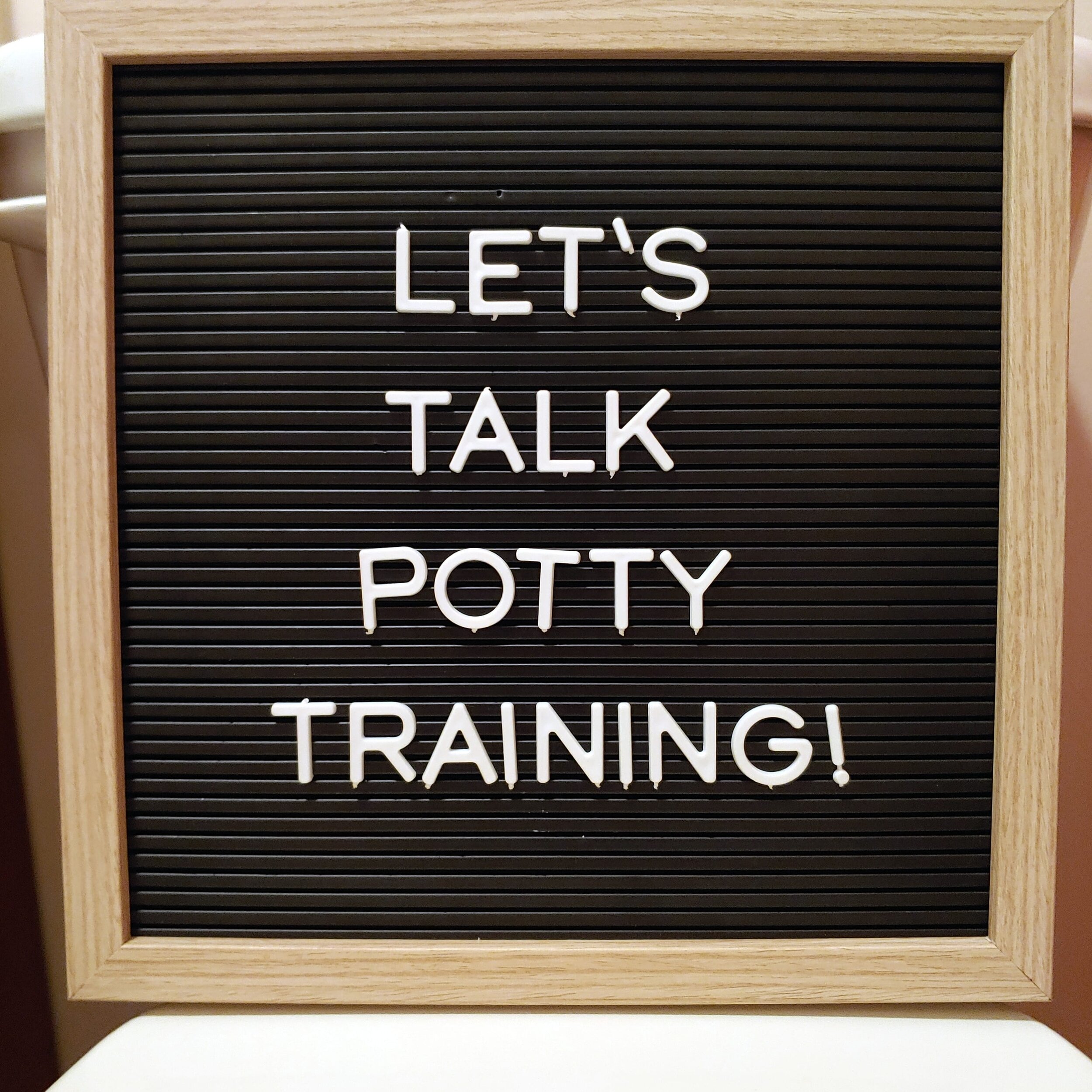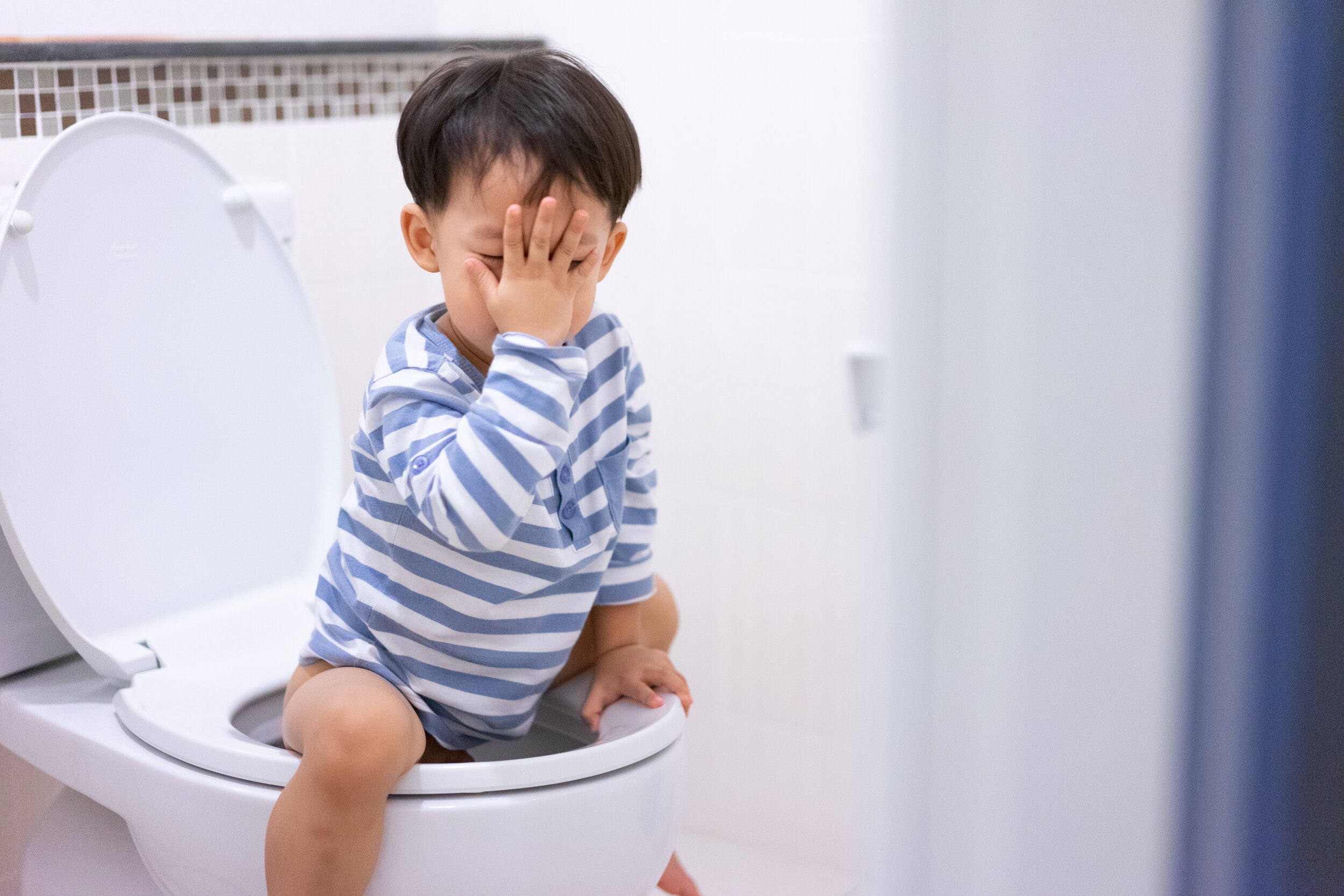My Child Won’t Poop, Part 2: Solutions
You’ve probably already diagnosed your child’s reason for not pooping on the potty, or at least spent a while speculating about the possibilities and feeling very frustrated by their refusal. If you haven’t, pop back over to my last post about difficult potty trainees and see if any of the explanations seem to fit your child. By first identifying the root of the problem, you can move forward armed with the appropriate strategies.
The good news is that there are steps and tools that can help speed things along for your little one no matter what! Some may take more patience and time than others, but every success is a step in the right direction.
Let’s take a look at the solutions to help your child go poop!
1) Generalized poop anxiety
We talked about this in a previous post; poop is weird.
It looks weird, smells weird, feels weird, and even the sounds are weird! It is perfectly reasonable for a child to have some reservations about pooping on the toilet when they have happily been using a diaper for years.
Be patient with your child and take a few steps back. Remember that having them trained to pee is a big step in the right direction, take a big deep breath, and then set to work gently challenging their anxiety. Be enthusiastic about any attempts or willingness to step beyond their comfort zone. If they are willing to try, celebrate the effort!
Let them come to the bathroom with you, read lots of books, watch all of the old favorite episodes about potty training. Normalize pooping on the potty! Casually mention how it isn’t scary or painful. Use words like “sliding” inside of “push.” The language you use should be calm, comforting, and casual.
Some of my favorite books to read can be found here, here, and here (not affiliate links, just books I know and love!).
2) Pressure to perform
If you have been using a potty timer, reminding your child more than once or twice a day, or constantly asking your child if they need to poop, stop now.
Most healthy humans only poop once a day. If you’re reminding your child several times a day or more, you are almost certainly asking them when they truly do not need to poop! Your child has more than likely developed what we call “reminder resistance” and will want to try less with every reminder. Save the frustration and relax.
Lay off the reminders.
Instead, identify your child’s typical pooping pattern. Do they poop right after breakfast? Before bath time? Figure out when they naturally need to go and reserve the reminders for only that time every day.
If your child uses any other sort of visual routine chart throughout the day, start using a visual reminder for potty time. This can serve as a silent reminder to your child to listen to their body, incorporate trips to the potty into their daily routine, and remove the reminder from the parent-child dynamic.
3) Fear of pain
Any history of painful poop can leave a kid understandably anxious about repeating the “trauma.”
Even once or twice when your child happened to pass a tougher-than-usual stool makes every poop a game of roulette that they don’t really want to play.
To combat this, be proactive about healthy gut health. I know this is among the crunchier things you’ve heard me say, but I am increasingly a believer in the connection between the gut and the rest of your body.
In this case, it is a no-brainer. Gut health and stool clearly intertwined. Offer your child probiotic-rich yogurt for snacks, slip some into a smoothie full of other great veggies and lots of fluid. Chat with their pediatrician about children’s probiotic supplements. Keep them well-hydrated throughout the days with a full water bottle to sip on. Offer lots of fruit and loads of veggies. Avoid common constipators like too much rice, bread, and other simple carbohydrates.
4) Constipation and its effects
If your child has a history of constipation, or you suspect as much, please reach out to their pediatrician. Most will recommend a combination of stool softener and diet changes.
In rare cases, a chronically constipated individual can lose some of the nerve function in their rear, making potty training a slow, uphill (but not impossible!) battle.
Regardless of the severity, constipation can have lingering effects and make potty training difficult. If the struggle is due to a genuine medical issue like constipation, don’t forget to be patient with your child who truly lacks control over the problem. Work with their medical team and remember to praise any progress or small successes along the way.
Next week I will outline my favorite gentle, long-term potty training protocol for the ultra-stubborn, extremely anxious, or other extraordinary cases. Check back!




